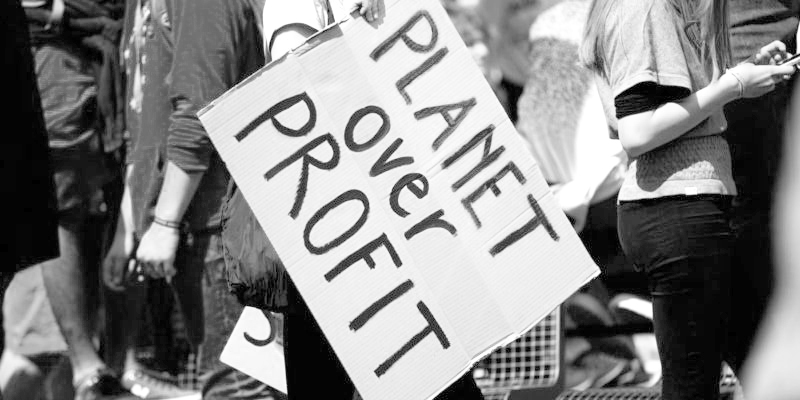Greenwashing – “where a company uses advertising and public messaging to appear more climate friendly and environmentally sustainable than it really is.”
Whilst many companies do intentionally greenwash to distract consumers from the environmental harm they are causing, other companies are greenwashing unintentionally due to a lack of knowledge and understanding of the claims that they are making.
Companies need to adjust their priorities so that the planet is considered in all business activity, before profit.
Over recent years, there have been a surge in consumers demanding environmentally and socially conscious products causing businesses to make environmental claims to please their stakeholder demands, without fully considering these claims. Increasingly, many clothing brands have been stating that they are sustainable, without truly understanding what it means to be sustainable. More recently, businesses are claiming that they are carbon neutral, just because they are using renewable energy. Research has shown that although awareness of the need to be environmentally friendly is increasing, there is a gap between this awareness and knowledge of what action to take to reduce environmental impact. Sustainability is a fast-changing topic that requires specialist skills and support to ensure that the right action within a business is taken. It is encouraging to see that the government and the Competition and Marketing Authority are acting against greenwashing, which I hope will encourage businesses to fully consider the claims that they make, so as not to confuse or mislead the consumer. However, a recent study undertaken by Bridge & Stitch showed that 95% of fashion SMEs did not have a qualified person within their organisation responsible for environmental action, highlighting the uphill battle necessary to educate businesses.

If you are a clothing brand wanting to take responsible action, the main advice we can give is to ensure that you consider the full supply chain. One of the biggest misperceptions is that brands presume that if they choose to use organic cotton or bamboo fabric, then they can claim they are sustainable. Sustainability is about the planet being able to sustain all the actions your business is making, without having a negative impact. To be sustainable you need to consider all elements of your product as well as aspects such as your office or home environment, the factory conditions and their actions, and any other trims and embellishments. Further to this, consideration is needed to the packaging and transport of your goods. It is very difficult to become fully sustainable so it is better to make claims such as “making responsible choices to reduce our environmental impact” which demonstrates a level of commitment to the environment, and will ensure that you are not misleading consumers or acting against the Green Code.
The main principles of the policy state:
- claims must be truthful and accurate
- claims must be clear and unambiguous
- claims must not omit or hide important relevant information
- comparisons must be fair and meaningful
- claims must consider the full life cycle of the product or service
- claims must be substantiated
For the full policy, please click on the link below:
For further information on greenwashing:
Have a question about what you can do to make your clothing brand more environmentally friendly? Please get in touch: hello@bridgeandstitch.com or +44 (0) 115 684 2525







